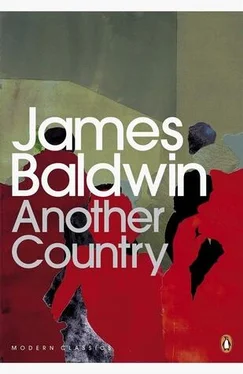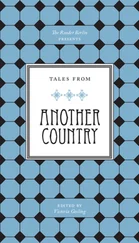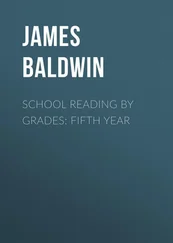“I always thought,” he ventured, “that it was easier for women.”
She turned and looked at him; she did not look as young any more. “That what was easier?”
“Knowing what to do.”
She threw back her head and laughed. “Oh, Vivaldo. Why?”
“I don’t know. Men have to think about so many things. Women only have to think about men.”
She laughed again. “What’s so easy about that?”
“It isn’t? I guess it isn’t.”
“Vivaldo. If men don’t know what’s happening, what they’re doing, where they’re going — what are women to do? If Richard doesn’t know what kind of world he wants, how am I to help him make it? What am I to tell our sons?” The question hung in the air between them; sluggishly (it was ten past seven) it struck echoes in him of Ida’s tone and Ida’s eyes when they quarreled. Oh. All you white boys make me sick. You want to find out what’s happening, baby, all you got to do is pay your dues!
Was there, in all that rage, a plea?
“I’ll buy you one more drink,” he said.
“Yes. Let me go home or do whatever I’m going to do with just a tiny hint of drunkenness. Excuse me a moment.” jauntily, she signaled the waiter; then gathered up her great handbag and walked to the ladies’ room.
All you got to do is pay your dues . He sat, islanded by the vague hum, the meaningless music, of the cocktail lounge, and recalled lapses and errors from his life with Ida which, at the time, he had blamed on her. Their first quarrel had occurred about a month after she had moved in, in April. His mother had called, one Sunday afternoon, to remind him of a birthday party, the following week, for his younger brother, Stevie. His mother assumed that he would not want to come, that he would try to get out of it, and this made her voice, before he could say anything, querulous and complaining. This he could not bear, which made his tone sharp and hostile. And there they were, then, the aging, frightened woman and her grown son, acting out their kindergarten drama. Ida, in the kitchen, watched and listened. Vivaldo, watching her, suddenly laughed and before he realized what he was saying, he asked, “Do you mind if I bring a girl friend?” And, as he said this, he felt Ida stiffen and become absolutely concentrated with rage.
“If she’s a nice girl,” his mother was saying. “You know we love to meet your friends.”
He felt immediate contrition, seeing, in his mind’s eye, her bewildered face, knowing how she wondered why her eldest son should cause, and appear to wish to cause her, so much pain. At the same time he was aware of Ida’s ominous humming in the kitchen.
“She’s a very nice girl,” he said, promptly, sincerely. Then he faltered, involuntarily stealing a glance at Ida. He did not know how to say, Mama, she’s a colored girl, knowing that his mother, and who on earth could blame her? would immediately decide that this was but one more attempt on his part to shock and humiliate his family. “I want you two to meet one day, I really do.” And this sounded totally insincere. He was thinking, I guess I really am going to have to tell them, I’m going to have to make them accept it . And then, at once, Oh, fuck it, why? He glanced again at Ida. She was smoking a cigarette and leafing through a magazine.
“Well,” said his mother, doubtfully, more than willing, albeit in her fashion, to come flying down the road to meet him, “try to bring her to the party. Everybody will be here and they all ask about you, we haven’t seen you in so long. I know your father misses you though he’ll never say a thing and Stevie misses you, too, and we all do, Danny.” They called him Danny at home.
Everybody: his sister and his brother-in-law, his brother and father and mother, the uncles and aunts and cousins, and the resulting miasma of piety and malice and suspicion and fear. The invincible chatter of people, concerning people, who had no reality for him, the talk about money, of children’s illnesses, of doctor’s bills, of pregnancies, of unlikely and unlovely infidelities occurring between ciphers and neuters in a vacuum, the ditchwater-dull, infantile dirty stories, and the insane talk about politics. They should, really, all of them, still be living in stables, with horses and cows, and should not be expected to tax themselves with matters beyond their comprehension. He hated himself for the sincerity of this reflection and was baffled, as always, by the particular and dangerous nature of its injustice.
“Okay,” he said, trying to stop his mother’s flow. She was telling him that his father’s stomach trouble had returned. Stomach trouble, my ass. He just hasn’t got any liver left any more, that’s all. One of these days he’s just going to spatter all over those walls, and what a stench.
“Are you going to bring your girl friend?”
“I don’t know. I’ll see.”
He could just see Ida with all of them. He, alone, was bad enough; he, alone, distressed and frightened them enough. Ida would reduce them to a kind of speechless hysteria and God knew what his father would say under the impression that he was putting the dark girl at her ease.
More chatter from his mother: it was as though each of her contacts with Vivaldo was so brief and so menaced that she tried to establish in minutes a communion which had not been accomplished in years.
“I’ll be there,” he said, “good-bye,” and hung up.
Yet, he had loved her once, he loved her still, he loved them all.
He looked at the silent telephone, then looked over at Ida.
“Want to come to a birthday party?”
“No, thank you, sweetie. You want to educate your family, you get them some slides, you hear? Colored slides,” and she raised her eyes, mockingly, from the magazine.
He laughed, but felt so guilty about Ida and about his mother that he was unable to let well enough alone.
“I’d like to take you over with me one of these days. It might do them some good. They’re such cornballs.”
“What might do them some good?” Her attention was still on her magazine.
“Why — meeting you. They’re not bad people. They’re just very limited.”
“I’ve told you, I’m not at all interested in the education of your family, Vivaldo.”
Obscurely, deeply, he was stung. “Don’t you think there’s any hope for them?”
“I don’t give a damn if there’s any hope for them or not. But I know that I am not about to be bugged by any more white jokers who still can’t figure out whether I’m human or not. If they don’t know, baby, sad on them, and I hope they drop dead slowly, in great pain.”
“That’s not very Christian,” he said, lightly. But he was ready to drop it.
“It’s the best I can do. I learned all my Christianity from white folks.”
“Oh, shit,” he said, “here we go again.”
The magazine came flying at him and hit him across the bridge of the nose.
“What do you mean, you white motherfucker!” She mimicked him. “ Here we go again! I’ve been living in this house for over a month and you still think it would be a big joke to take me home to see your mother! Goddammit, you think she’s a better woman than I am, you big, white, liberal asshole?” She caught her breath and started toward him, crouching, her hands on her hips. “Or do you think it would serve your whore of a mother right to bring your nigger whore home for her to see? Answer me, goddamnit!”
“Will you shut up? You’re going to have the police down here in a minute.”
“Yes, and when they come, I’m going to tell them you dragged me in off the streets and refused to pay me, yes, I am. You think I’m a whore, well, you treat me like a whore, goddamn your white prick, pay! ”
Читать дальше












